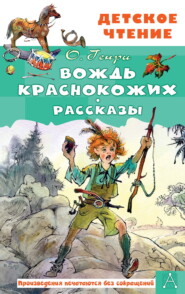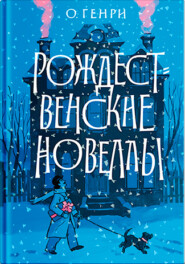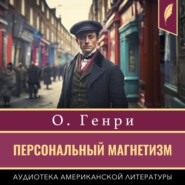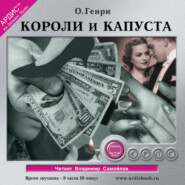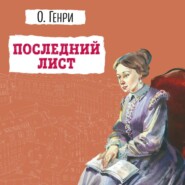По всем вопросам обращайтесь на: info@litportal.ru
(©) 2003-2024.
✖
«The Ransom of Red Chief» and Other Stories / «Вождь краснокожих» и другие рассказы
Настройки чтения
Размер шрифта
Высота строк
Поля
“Keep behind the horses, Nan,” he commanded. “That fellow is a ruffian I sent to prison once. He's trying to get even. He knows our shot won't hurt him at that distance.”
“All right, Bob,” said Nancy steadily. “I'm not afraid. But you come close, too. Whoa, Bess; stand still, now!”
She stroked Bess's mane. Littlefield stood with his gun ready, praying that the desperado would come within range.
But Mexico Sam was playing his vendetta along safe lines. He was a bird of different feather from the plover. His accurate eye drew an imaginary line of circumference around the area of danger from bird-shot, and upon this line he rode. His horse wheeled to the right, and as his victims rounded to the safe side of their equine breast-work he sent a ball through the district attorney's hat. Once he miscalculated in making a détour, and over-stepped his margin. Littlefield's gun flashed, and Mexico Sam ducked his head to the harmless patter of the shot. A few of them stung his horse, which pranced promptly back to the safety line.
The desperado fired again. A little cry came from Nancy Derwent. Littlefield whirled, with blazing eyes, and saw the blood trickling down her cheek.
“I'm not hurt, Bob-only a splinter struck me. I think he hit one of the wheel-spokes.”
“Lord!” groaned Littlefield. “If I only had a charge of buckshot!”
The ruffian got his horse still, and took careful aim. Fly gave a snort and fell in the harness, struck in the neck. Bess, now disabused of the idea that plover were being fired at, broke her traces and galloped wildly away. Mexican Sam sent a ball neatly through the fulness of Nancy Derwent's shooting jacket.
“Lie down-lie down!” snapped Littlefield. “Close to the horse-flat on the ground-so.” He almost threw her upon the grass against the back of the recumbent Fly. Oddly enough, at that moment the words of the Mexican girl returned to his mind:
“If the life of the girl you love is ever in danger, remember Rafael Ortiz.”
Littlefield uttered an exclamation.
“Open fire on him, Nan, across the horse's back. Fire as fast as you can! You can't hurt him, but keep him dodging shot for one minute while I try to work a little scheme.”
Nancy gave a quick glance at Littlefield, and saw him take out his pocket-knife and open it. Then she turned her face to obey orders, keeping up a rapid fire at the enemy.
Mexico Sam waited patiently until this innocuous fusillade ceased. He had plenty of time, and he did not care to risk the chance of a bird-shot in his eye when it could be avoided by a little caution. He pulled his heavy Stetson low down over his face until the shots ceased. Then he drew a little nearer, and fired with careful aim at what he could see of his victims above the fallen horse.
Neither of them moved. He urged his horse a few steps nearer. He saw the district attorney rise to one knee and deliberately level his shotgun. He pulled his hat down and awaited the harmless rattle of the tiny pellets.
The shotgun blazed with a heavy report. Mexico Sam sighed, turned limp all over, and slowly fell from his horse-a dead rattlesnake.
At ten o'clock the next morning court opened, and the case of the United States versus Rafael Ortiz was called. The district attorney, with his arm in a sling, rose and addressed the court.
“May it please your honour,” he said, “I desire to enter a nolle pros. in this case. Even though the defendant should be guilty, there is not sufficient evidence in the hands of the government to secure a conviction. The piece of counterfeit coin upon the identity of which the case was built is not now available as evidence. I ask, therefore, that the case be stricken off.”
At the noon recess Kilpatrick strolled into the district attorney's office.
“I've just been down to take a squint at old Mexico Sam,” said the deputy. “They've got him laid out. Old Mexico was a tough outfit, I reckon. The boys was wonderin' down there what you shot him with. Some said it must have been nails. I never see a gun carry anything to make holes like he had.”
“I shot him,” said the district attorney, “with Exhibit A of your counterfeiting case. Lucky thing for me-and somebody else-that it was as bad money as it was! It sliced up into slugs very nicely. Say, Kil, can't you go down to the jacals and find where that Mexican girl lives? Miss Derwent wants to know.”
A Chaparral Christmas Gift
The original cause of the trouble was about twenty years in growing.
At the end of that time it was worth it.
Had you lived anywhere within fifty miles of Sundown Ranch you would have heard of it. It possessed a quantity of jet-black hair, a pair of extremely frank, deep-brown eyes and a laugh that rippled across the prairie like the sound of a hidden brook. The name of it was Rosita McMullen; and she was the daughter of old man McMullen of the Sundown Sheep Ranch.
There came riding on red roan steeds-or, to be more explicit, on a paint and a flea-bitten sorrel-two wooers. One was Madison Lane, and the other was the Frio Kid. But at that time they did not call him the Frio Kid, for he had not earned the honours of special nomenclature. His name was simply Johnny McRoy.
It must not be supposed that these two were the sum of the agreeable Rosita's admirers. The bronchos of a dozen others champed their bits at the long hitching rack of the Sundown Ranch. Many were the sheeps'-eyes that were cast in those savannas that did not belong to the flocks of Dan McMullen. But of all the cavaliers, Madison Lane and Johnny McRoy galloped far ahead, wherefore they are to be chronicled.
Madison Lane, a young cattleman from the Nueces country, won the race. He and Rosita were married one Christmas day. Armed, hilarious, vociferous, magnanimous, the cowmen and the sheepmen, laying aside their hereditary hatred, joined forces to celebrate the occasion.
Sundown Ranch was sonorous with the cracking of jokes and sixshooters, the shine of buckles and bright eyes, the outspoken congratulations of the herders of kine.
But while the wedding feast was at its liveliest there descended upon it Johnny McRoy, bitten by jealousy, like one possessed.
“I'll give you a Christmas present,” he yelled, shrilly, at the door, with his 45 in his hand. Even then he had some reputation as an offhand shot.
His first bullet cut a neat underbit in Madison Lane's right ear. The barrel of his gun moved an inch. The next shot would have been the bride's had not Carson, a sheepman, possessed a mind with triggers somewhat well oiled and in repair. The guns of the wedding party had been hung, in their belts, upon nails in the wall when they sat at table, as a concession to good taste. But Carson, with great promptness, hurled his plate of roast venison and frijoles at McRoy, spoiling his aim. The second bullet, then, only shattered the white petals of a Spanish dagger flower suspended two feet above Rosita's head.
The guests spurned their chairs and jumped for their weapons. It was considered an improper act to shoot the bride and groom at a wedding. In about six seconds there were twenty or so bullets due to be whizzing in the direction of Mr. McRoy.
“I'll shoot better next time,” yelled Johnny; “and there'll be a next time.” He backed rapidly out the door.
Carson, the sheepman, spurred on to attempt further exploits by the success of his plate-throwing, was first to reach the door. McRoy's bullet from the darkness laid him low.
The cattlemen then swept out upon him, calling for vengeance, for, while the slaughter of a sheepman has not always lacked condonement, it was a decided misdemeanour in this instance. Carson was innocent; he was no accomplice at the matrimonial proceedings; nor had any one heard him quote the line “Christmas comes but once a year” to the guests.
But the sortie failed in its vengeance. McRoy was on his horse and away, shouting back curses and threats as he galloped into the concealing chaparral.
That night was the birthnight of the Frio Kid. He became the “bad man” of that portion of the State. The rejection of his suit by Miss McMullen turned him to a dangerous man. When officers went after him for the shooting of Carson, he killed two of them, and entered upon the life of an outlaw. He became a marvellous shot with either hand. He would turn up in towns and settlements, raise a quarrel at the slightest opportunity, pick off his man and laugh at the officers of the law. He was so cool, so deadly, so rapid, so inhumanly blood-thirsty that none but faint attempts were ever made to capture him. When he was at last shot and killed by a little one-armed Mexican who was nearly dead himself from fright, the Frio Kid had the deaths of eighteen men on his head. About half of these were killed in fair duels depending upon the quickness of the draw. The other half were men whom he assassinated from absolute wantonness and cruelty.
Many tales are told along the border of his impudent courage and daring. But he was not one of the breed of desperadoes who have seasons of generosity and even of softness. They say he never had mercy on the object of his anger. Yet at this and every Christmastide it is well to give each one credit, if it can be done, for whatever speck of good he may have possessed. If the Frio Kid ever did a kindly act or felt a throb of generosity in his heart it was once at such a time and season, and this is the way it happened.
One who has been crossed in love should never breathe the odour from the blossoms of the ratama tree. It stirs the memory to a dangerous degree.
One December in the Frio country there was a ratama tree in full bloom, for the winter had been as warm as springtime. That way rode the Frio Kid and his satellite and co-murderer, Mexican Frank. The kid reined in his mustang, and sat in his saddle, thoughtful and grim, with dangerously narrowing eyes. The rich, sweet scent touched him somewhere beneath his ice and iron.
“I don't know what I've been thinking about, Mex,” he remarked in his usual mild drawl, “to have forgot all about a Christmas present I got to give. I'm going to ride over tomorrow night and shoot Madison Lane in his own house. He got my girl-Rosita would have had me if he hadn't cut into the game. I wonder why I happened to overlook it up to now?”
“Ah, shucks, Kid,” said Mexican, “don't talk foolishness. You know you can't get within a mile of Mad Lane's house tomorrow night. I see old man Allen day before yesterday, and he says Mad is going to have Christmas doings at his house. You remember how you shot up the festivities when Mad was married, and about the threats you made? Don't you suppose Mad Lane'll kind of keep his eye open for a certain Mr. Kid? You plumb make me tired, Kid, with such remarks.”
“I'm going,” repeated the Frio Kid, without heat, “to go to Madison Lane's Christmas doings, and kill him. I ought to have done it a long time ago. Why, Mex, just two weeks ago I dreamed me and Rosita was married instead of her and him; and we was living in a house, and I could see her smiling at me, and-oh! h-l, Mex, he got her; and I'll get him-yes, sir, on Christmas Eve he got her, and then's when I'll get him.”
“There's other ways of committing suicide,” advised Mexican. “Why don't you go and surrender to the sheriff?”
“I'll get him,” said the Kid.
Christmas Eve fell as balmy as April. Perhaps there was a hint of far-away frostiness in the air, but it tingles like seltzer, perfumed faintly with late prairie blossoms and the mesquite grass.
When night came the five or six rooms of the ranch-house were brightly lit. In one room was a Christmas tree, for the Lanes had a boy of three, and a dozen or more guests were expected from the nearer ranches.
At nightfall Madison Lane called aside Jim Belcher and three other cowboys employed on his ranch.
“Now, boys,” said Lane, “keep your eyes open. Walk around the house and watch the road well. All of you know the 'Frio Kid,' as they call him now, and if you see him, open fire on him without asking any questions. I'm not afraid of his coming around, but Rosita is. She's been afraid he'd come in on us every Christmas since we were married.”
“All right, Bob,” said Nancy steadily. “I'm not afraid. But you come close, too. Whoa, Bess; stand still, now!”
She stroked Bess's mane. Littlefield stood with his gun ready, praying that the desperado would come within range.
But Mexico Sam was playing his vendetta along safe lines. He was a bird of different feather from the plover. His accurate eye drew an imaginary line of circumference around the area of danger from bird-shot, and upon this line he rode. His horse wheeled to the right, and as his victims rounded to the safe side of their equine breast-work he sent a ball through the district attorney's hat. Once he miscalculated in making a détour, and over-stepped his margin. Littlefield's gun flashed, and Mexico Sam ducked his head to the harmless patter of the shot. A few of them stung his horse, which pranced promptly back to the safety line.
The desperado fired again. A little cry came from Nancy Derwent. Littlefield whirled, with blazing eyes, and saw the blood trickling down her cheek.
“I'm not hurt, Bob-only a splinter struck me. I think he hit one of the wheel-spokes.”
“Lord!” groaned Littlefield. “If I only had a charge of buckshot!”
The ruffian got his horse still, and took careful aim. Fly gave a snort and fell in the harness, struck in the neck. Bess, now disabused of the idea that plover were being fired at, broke her traces and galloped wildly away. Mexican Sam sent a ball neatly through the fulness of Nancy Derwent's shooting jacket.
“Lie down-lie down!” snapped Littlefield. “Close to the horse-flat on the ground-so.” He almost threw her upon the grass against the back of the recumbent Fly. Oddly enough, at that moment the words of the Mexican girl returned to his mind:
“If the life of the girl you love is ever in danger, remember Rafael Ortiz.”
Littlefield uttered an exclamation.
“Open fire on him, Nan, across the horse's back. Fire as fast as you can! You can't hurt him, but keep him dodging shot for one minute while I try to work a little scheme.”
Nancy gave a quick glance at Littlefield, and saw him take out his pocket-knife and open it. Then she turned her face to obey orders, keeping up a rapid fire at the enemy.
Mexico Sam waited patiently until this innocuous fusillade ceased. He had plenty of time, and he did not care to risk the chance of a bird-shot in his eye when it could be avoided by a little caution. He pulled his heavy Stetson low down over his face until the shots ceased. Then he drew a little nearer, and fired with careful aim at what he could see of his victims above the fallen horse.
Neither of them moved. He urged his horse a few steps nearer. He saw the district attorney rise to one knee and deliberately level his shotgun. He pulled his hat down and awaited the harmless rattle of the tiny pellets.
The shotgun blazed with a heavy report. Mexico Sam sighed, turned limp all over, and slowly fell from his horse-a dead rattlesnake.
At ten o'clock the next morning court opened, and the case of the United States versus Rafael Ortiz was called. The district attorney, with his arm in a sling, rose and addressed the court.
“May it please your honour,” he said, “I desire to enter a nolle pros. in this case. Even though the defendant should be guilty, there is not sufficient evidence in the hands of the government to secure a conviction. The piece of counterfeit coin upon the identity of which the case was built is not now available as evidence. I ask, therefore, that the case be stricken off.”
At the noon recess Kilpatrick strolled into the district attorney's office.
“I've just been down to take a squint at old Mexico Sam,” said the deputy. “They've got him laid out. Old Mexico was a tough outfit, I reckon. The boys was wonderin' down there what you shot him with. Some said it must have been nails. I never see a gun carry anything to make holes like he had.”
“I shot him,” said the district attorney, “with Exhibit A of your counterfeiting case. Lucky thing for me-and somebody else-that it was as bad money as it was! It sliced up into slugs very nicely. Say, Kil, can't you go down to the jacals and find where that Mexican girl lives? Miss Derwent wants to know.”
A Chaparral Christmas Gift
The original cause of the trouble was about twenty years in growing.
At the end of that time it was worth it.
Had you lived anywhere within fifty miles of Sundown Ranch you would have heard of it. It possessed a quantity of jet-black hair, a pair of extremely frank, deep-brown eyes and a laugh that rippled across the prairie like the sound of a hidden brook. The name of it was Rosita McMullen; and she was the daughter of old man McMullen of the Sundown Sheep Ranch.
There came riding on red roan steeds-or, to be more explicit, on a paint and a flea-bitten sorrel-two wooers. One was Madison Lane, and the other was the Frio Kid. But at that time they did not call him the Frio Kid, for he had not earned the honours of special nomenclature. His name was simply Johnny McRoy.
It must not be supposed that these two were the sum of the agreeable Rosita's admirers. The bronchos of a dozen others champed their bits at the long hitching rack of the Sundown Ranch. Many were the sheeps'-eyes that were cast in those savannas that did not belong to the flocks of Dan McMullen. But of all the cavaliers, Madison Lane and Johnny McRoy galloped far ahead, wherefore they are to be chronicled.
Madison Lane, a young cattleman from the Nueces country, won the race. He and Rosita were married one Christmas day. Armed, hilarious, vociferous, magnanimous, the cowmen and the sheepmen, laying aside their hereditary hatred, joined forces to celebrate the occasion.
Sundown Ranch was sonorous with the cracking of jokes and sixshooters, the shine of buckles and bright eyes, the outspoken congratulations of the herders of kine.
But while the wedding feast was at its liveliest there descended upon it Johnny McRoy, bitten by jealousy, like one possessed.
“I'll give you a Christmas present,” he yelled, shrilly, at the door, with his 45 in his hand. Even then he had some reputation as an offhand shot.
His first bullet cut a neat underbit in Madison Lane's right ear. The barrel of his gun moved an inch. The next shot would have been the bride's had not Carson, a sheepman, possessed a mind with triggers somewhat well oiled and in repair. The guns of the wedding party had been hung, in their belts, upon nails in the wall when they sat at table, as a concession to good taste. But Carson, with great promptness, hurled his plate of roast venison and frijoles at McRoy, spoiling his aim. The second bullet, then, only shattered the white petals of a Spanish dagger flower suspended two feet above Rosita's head.
The guests spurned their chairs and jumped for their weapons. It was considered an improper act to shoot the bride and groom at a wedding. In about six seconds there were twenty or so bullets due to be whizzing in the direction of Mr. McRoy.
“I'll shoot better next time,” yelled Johnny; “and there'll be a next time.” He backed rapidly out the door.
Carson, the sheepman, spurred on to attempt further exploits by the success of his plate-throwing, was first to reach the door. McRoy's bullet from the darkness laid him low.
The cattlemen then swept out upon him, calling for vengeance, for, while the slaughter of a sheepman has not always lacked condonement, it was a decided misdemeanour in this instance. Carson was innocent; he was no accomplice at the matrimonial proceedings; nor had any one heard him quote the line “Christmas comes but once a year” to the guests.
But the sortie failed in its vengeance. McRoy was on his horse and away, shouting back curses and threats as he galloped into the concealing chaparral.
That night was the birthnight of the Frio Kid. He became the “bad man” of that portion of the State. The rejection of his suit by Miss McMullen turned him to a dangerous man. When officers went after him for the shooting of Carson, he killed two of them, and entered upon the life of an outlaw. He became a marvellous shot with either hand. He would turn up in towns and settlements, raise a quarrel at the slightest opportunity, pick off his man and laugh at the officers of the law. He was so cool, so deadly, so rapid, so inhumanly blood-thirsty that none but faint attempts were ever made to capture him. When he was at last shot and killed by a little one-armed Mexican who was nearly dead himself from fright, the Frio Kid had the deaths of eighteen men on his head. About half of these were killed in fair duels depending upon the quickness of the draw. The other half were men whom he assassinated from absolute wantonness and cruelty.
Many tales are told along the border of his impudent courage and daring. But he was not one of the breed of desperadoes who have seasons of generosity and even of softness. They say he never had mercy on the object of his anger. Yet at this and every Christmastide it is well to give each one credit, if it can be done, for whatever speck of good he may have possessed. If the Frio Kid ever did a kindly act or felt a throb of generosity in his heart it was once at such a time and season, and this is the way it happened.
One who has been crossed in love should never breathe the odour from the blossoms of the ratama tree. It stirs the memory to a dangerous degree.
One December in the Frio country there was a ratama tree in full bloom, for the winter had been as warm as springtime. That way rode the Frio Kid and his satellite and co-murderer, Mexican Frank. The kid reined in his mustang, and sat in his saddle, thoughtful and grim, with dangerously narrowing eyes. The rich, sweet scent touched him somewhere beneath his ice and iron.
“I don't know what I've been thinking about, Mex,” he remarked in his usual mild drawl, “to have forgot all about a Christmas present I got to give. I'm going to ride over tomorrow night and shoot Madison Lane in his own house. He got my girl-Rosita would have had me if he hadn't cut into the game. I wonder why I happened to overlook it up to now?”
“Ah, shucks, Kid,” said Mexican, “don't talk foolishness. You know you can't get within a mile of Mad Lane's house tomorrow night. I see old man Allen day before yesterday, and he says Mad is going to have Christmas doings at his house. You remember how you shot up the festivities when Mad was married, and about the threats you made? Don't you suppose Mad Lane'll kind of keep his eye open for a certain Mr. Kid? You plumb make me tired, Kid, with such remarks.”
“I'm going,” repeated the Frio Kid, without heat, “to go to Madison Lane's Christmas doings, and kill him. I ought to have done it a long time ago. Why, Mex, just two weeks ago I dreamed me and Rosita was married instead of her and him; and we was living in a house, and I could see her smiling at me, and-oh! h-l, Mex, he got her; and I'll get him-yes, sir, on Christmas Eve he got her, and then's when I'll get him.”
“There's other ways of committing suicide,” advised Mexican. “Why don't you go and surrender to the sheriff?”
“I'll get him,” said the Kid.
Christmas Eve fell as balmy as April. Perhaps there was a hint of far-away frostiness in the air, but it tingles like seltzer, perfumed faintly with late prairie blossoms and the mesquite grass.
When night came the five or six rooms of the ranch-house were brightly lit. In one room was a Christmas tree, for the Lanes had a boy of three, and a dozen or more guests were expected from the nearer ranches.
At nightfall Madison Lane called aside Jim Belcher and three other cowboys employed on his ranch.
“Now, boys,” said Lane, “keep your eyes open. Walk around the house and watch the road well. All of you know the 'Frio Kid,' as they call him now, and if you see him, open fire on him without asking any questions. I'm not afraid of his coming around, but Rosita is. She's been afraid he'd come in on us every Christmas since we were married.”






